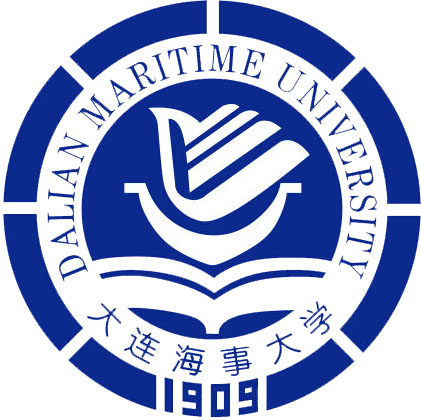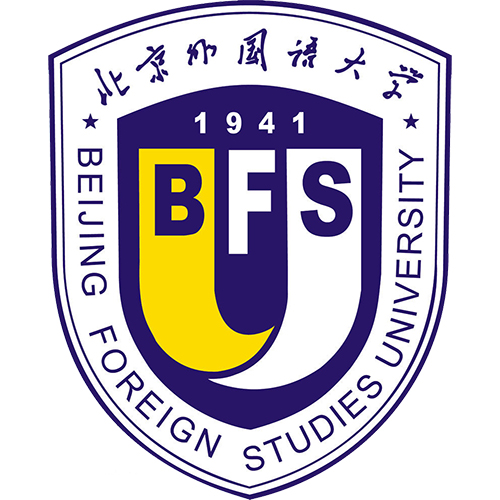
 Introduction
Introduction About the Program
About the Program About Dalian Maritime University
About Dalian Maritime UniversityDalian Maritime University
Dalian Maritime University (DMU) is one of the largest and best maritime universities and is the only key maritime institution under the Ministry of Communications, People’s Republic of China. DMU enjoys a high reputation internationally as an excellent center of maritime education and training as recognized by the International Maritime Organization (IMO).
The long history of the University can be traced back to 1909, when the Nanyang Institute in Shanghai established a Shipping Management Section. Chinese higher maritime education went through many difficult periods and was not well developed before the founding of the people’s Republic of China in 1949.
DMU was created in 1953 through the amalgamation of three merchant marine institutions: Shanghai Nautical College, the Northeast Navigation College and Fujian Navigation School. At that time its name was Dalian Marine College, and it was the only maritime college in China. In 1960, DMU was designated a national key institution of higher education. Later in 1983, the Asia-Pacific Region Maritime Training Center was established at DMU by the United Nations Development Program (UNDP), and the IMO and in 1985 a branch of the World Maritime University (WMU) was established.
With the approval of the Ministry of Education in 1994, the Univrsity’s name was changed to the present one. In 1998, the University was awarded the ISO9001 Certificate of Quality Assurance accredited by the Norwegian Det Norske Veritas (DNV) and the China Maritime Safety Administration (MSA); it became the first maritime university in China to have the ISO9001 Certificate. In 2004, the University successfully passed the quality assessment of undergraduate teaching by the Ministry of Education. Through continual development, DMU has been at the forefront of similar universities both in broadening the scope and in enhancing the level of its programs.
The great results DMU has achievd and the reputation DMU enjoys both at home and abroad are highly valued by the leaders of China. On August 22nd and October 20th in 1993, the Chinese Government leaders, fomer President Jiang Zemin, Vice President Zeng Qinhong, Premier Wen Jiabao, and Vice Premier Li Lanqing, respectively, inspected DMU. Former President Jiang wrote a few words of encouragement for DMU:”Be steadfast, rigorous, industrious, and pioneering in order to build the University into one of the preeminent maritime universities in the world”.
In 1997, DMU began the National Project 211, a plan to build one hundred national-level universities in China.
DMU is located in southwestern Dalian, which is a famous coastal city in northeastern China with a population of six million. The University covers an area of one million square meters with almost half a million square meters occupied by buildings. The University owns the buildings for maritime sciences that contain fully functional equipment and facilities. There are additional buildings for maritime training and research, survival training, swimming pool, planetarium and libraries. DMU has a training dock and over 40 laboratories for teaching, training and research that also include a full mission ship-handling simulator and an engine room simulator. DMU also owns and operates an ocean-going training vessel of over 10,000 deadweight tonnage.
The University consists of 13 colleges, and in addition to the departments in each college, there are three other departments which serve as support departments for entire University. Presently DMU has a post-doctoral program (R&D base), 16 Doctoral programs,57 master’s degree programs, and 42 undergraduate programs. Both the Traffic Information Engineering and Control and the Marine Engineering are national key disciplines. The University is authorized to confer MBA, MPA, J.M, and Master of Engineering, an on-the-job master’s degree.
Since the amalgamation, DMU has educated and trained nearly 50,000 advanced professionals and technical authorities for the country. Many of them are now playing essential roles in maritime and maritime-related industries both in and outside of China. The current student population has risen to approximately 17,000.Additionally, our university enrolls overseas students for Bachelor’s Master’s Degrees and PhDs. More than 4,000 overseas students and advanced professionals from over 30 countries and regions have been educated and trained at DMU.
DMU has a highly qualified faculty team, including 204 professors, 400 associate professors, 157 doctoral supervisors, 40 discipline leader,96 academic leaders, and a large number of excellent young faculty staff members. The team of young specialists and professors is well equipped in profound theoretical knowledge and capable of extensive research in the fields of marine traffic engineering, maritime information engineering, artificial intelligence application onboard vessels, ship power systems and energy-saving technology, marine engine repairing, communication and information systems, marine environmental protection, and maritime law.
DMU has an academic agreement with 5 academicians of the National Academy of Engineering, 48 chair professors, and 198 visiting professors. With the practical academic focus at DMU, these famous specialists and scholars from across the world can bring the latest concepts and the most advanced information in research and theory to DMU faculty staff and students. The staff and students, therefore, have more opportunities to explore and uphold the vision, and consequently can work in a comfortable academic atmosphere.
The University has an international vision regarding academic cooperation and exchange. Since 1979 when the reform and open-door policy started, DMU has established cooperative relations with more than 20 international renowned maritime institutions, which include those in Russia, USA, Japan, Great Britain, Korea, Australia, Sweden, Egypt and Vietnam. The academic relationships with these sister universities are maintained through mutual visits, faculty staff and student exchanges, joint programs and joint research projects.
In March 2005, the first joint MSc Program in Maritime Safety and Environmental Management was successfully inaugurated at DMU. This further enhances the University’s level of international academic cooperation. The University has established long-term cooperative relationships with international organizations and institutions, including the International Maritime Organization (IMO), the International Labor Organization (ILO), the International Association of Maritime Universities (IAMU), the Association of the Maritime Education and Training Institutes in Asia Pacific (AMETIAP), the International Maritime Lecturers Association (IMLA), Asia-Pacific Economics Cooperation (APEC), the Association of Southeast Asian Nations (ASEAN), the International Shipping Federation (ISF), the International Association of Classification Societies (IACS), as well as some world famous shipping companies.
Facing the future with its new opportunities and challenges, DMU will continue to bear in mind its mission statement, ”be steadfast, rigorous, industrious, pioneering”. We are determined to focus on our mission by exploring and grasping exciting opportunities, creatively addressing new challenges and, with our multiple disciplines for research and education, we will achieve our goal of upgrading the University to a position of preeminence among the world’s maritime universities.
 Accommodation
Accommodation|
Room Type |
Inside Plant |
Public Facilities in Building |
Less Than 4 Months |
One Semester |
One Academic Year |
|
Single Room |
bathroom/desk/wardrobe/
TV/phone/internet |
kitchen/refrigerator/
range hood/washing machine/elevator |
35 RMB/per
day/per room |
5200RMB
/per room |
10000RMB
/per room |
|
Double Room |
50 RMB/per
day/per room |
7400RMB
/per room |
14000RMB
/per room |
 Fees
Fees Admissions Process
Admissions Process  Entry Requirements
Entry Requirements
1.Applicants must be non-Chinese citizens with a valid passport
2.Be in good health condition
3.Applicant should be less than 35
4.HSK level 4 or above
5.Applicant should hold high school graduation or equivalent to a Chinese high school graduate
Note: Applicants without HSK certificate (level 4 or above) should attend Mandarin level test of the university,and those who get the result equivalent to HSK level 4 or above can be considered.
 Application Materials
Application Materials
1.Photocopy of valid passport
With photo, passport number &expiration date and name included.
2.Passport-sized photo
A passport-sized photo taken recently of the applicant.
3.Graduation certificate of high school
Graduation certificate should be in Chinese or English.If not, it should be translated into Chinese or English and
be notarized.
4.Academic transcript of high school
5.HSK Certificate (No need for English-taught program)
HSK level 4
 Reviews
Reviews